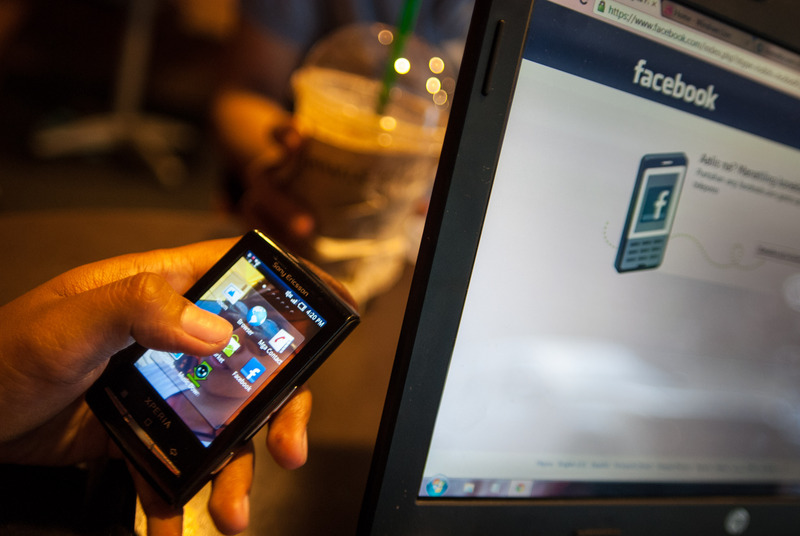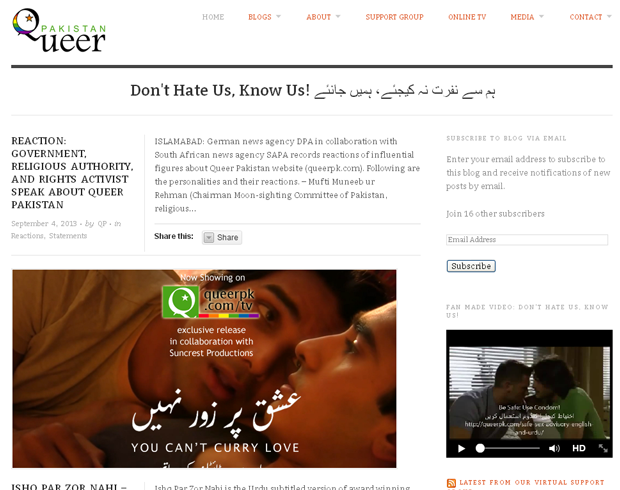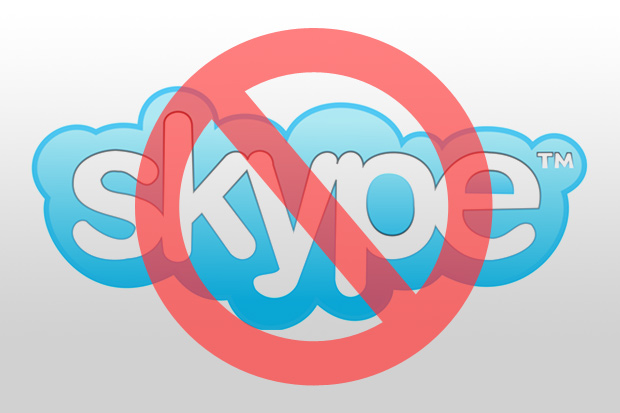Index relies entirely on the support of donors and readers to do its work.
Help us keep amplifying censored voices today.

(Photo illustration: Shutterstock)
The number of Ugandans with internet connectivity keeps on increasing, especially because of the influx of cheap handsets with internet access from China. Today, over 990,000 Ugandans have Facebook accounts. This though, is still a drop in the ocean keeping in mind that the country has a population over 35 million. By comparison, almost 20 million have access to mobile phones with SMS capabilities. The current Ugandan regime seeks to have direct control over all these vital information dissemination tools.
The Uganda Communications Commission (UCC), a government arm set up as a regulator of the telecommunications industry, is the government’s barking dog in this endeavour, and has often been let loose to abuse digital freedoms in the country. Among other things, a directive was issued to all telecom companies to register phone and data SIM cards they sell, capturing all details about the buyer. The government also uses the option to transfer money via mobile phones, offered by many telecom companies, to monitor activities of opposition politicians and activists. With the enactment of the Public Order Management Act (POMA) into law recently, the Ugandan police has set up several bureaus in its different departments to monitor the social media, calls and SMS of individuals from the opposition and civil society, as well as journalists and other activists. POMA is a draconian law that has been enacted to limit the movements and gatherings of people without police permission, among other harsh provisions.
Since the government of Uganda liberalised the economy in the 1990’s, several telecommunication companies and other Internet Service Providers (ISPs) have been offering telecom services in tandem with the international developments in that industry. Today, the biggest ISPs are the South African MTN, the French Orange, Bharti Airtel, which has now merged with Warid Telecom, and the indigenous UTL. During the riots of 2009 and 2011, UCC asked all ISPs to block emails, SMS and Facebook messages that had any political content or that mentioned names of certain government and opposition politicians. Although some protested, they had to give in or risk losing their operation licenses in the country. It should be noted too that all the telecommunication companies in the country have political godfathers high up in the echelons of the current government. With this arrangement, ISPs are easily beaten into the “correct line.”
Among the different social media channels available today like Whatsapp, Twitter and e-mails, Facebook remains one of the most widely used and fastest growing social media channel. All others are used basically by what one could term as Uganda’s elite class. The Ugandan police, on behalf of the government, recently asked Facebook to provide them with information held about all Ugandans with registered accounts – a request Facebook turned down. Many Ugandans are today able to air out their grievances with government through Facebook, and this is one of the highly monitored social media outlets by the government. Critics have used this outlet to discuss issues with the public, and the regime is not happy with it. The government manoeuvres clearly indicate that it would very much love to have total control of the social media channels, but it is hampered by the fact that all firms controlling these channels are abroad and out of its reach and patronage.
Take the case of the now famous Tom Voltaire Okwalinga (TVO), a Ugandan blogger who is also very active on Facebook. He has written extensively about the abuses of government, and he is one individual the Ugandan government would pay any price to identify and apprehend. Despite the government’s efforts to identify him and the number of security operatives that have been deployed to apprehend this individual, TVO has developed a big following on Facebook, usually commenting on his exposés.
His case shows how, in the nutshell, the Ugandan government is trying to gain an upper hand in controlling and curbing digital freedoms in the country.
This article was originally posted on 6 Nov 2013 at indexoncensorship.org

The question anyone who defends free speech gets asked most frequently is “Where do you draw the line?”
The announcement by Facebook today that it will allow users to post videos of beheadings is bound to raise that question.
So where do we draw the line? The answer is that it is nigh-on impossible, when discussing free speech, to take general positions on any specific kind of speech or content. One must always look at the context.
Facebook’s own statement reflects this:
“Facebook has long been a place where people turn to share their experiences, particularly when they’re connected to controversial events on the ground, such as human rights abuses, acts of terrorism and other violent events,” the company said in a statement.
“People share videos of these events on Facebook to condemn them. If they were being celebrated, or the actions in them encouraged, our approach would be different.”
This might sound frustrating, particularly when, as the Guardian’s Jonathan Freedland points out, you contrast it with Facebook’s oft-cited banning of pictures of breastfeeding women.
But the blocking of breastfeeding pictures illustrates exactly the problem with drawing arbitrary lines on free speech. One can see a certain logic behind not allowing pictures of bare breasts; Facebook doesn’t want its platform to be given over to soft and hard porn; but most adults realise that images of bare breasts are not necessarily pornographic. Facebook policy, by the way, is not to ban pictures of breastfeeding women. But they admit to making mistakes and removing content that should not be removed. They do have a blanket ban on nudity.
Not every video of extreme violence can be automatically categorised as “snuff”, and there is an argument that if one wants to discuss brutality, one must be able to see it. Perhaps in an attempt to counter claims that allowing beheading videos to be viewed would somehow create a market for them, Facebook has said it will not allow videos posted by people seeking to praise the content. This, in terms of the free speech argument, yet again raises questions about the use and abuse of the notion of “glorification of terrorism” laws. We’re back to attempting to draw lines.
Debates over what is and isn’t “acceptable” free speech will never go away. And we will never honestly establish where the “line” is. Any discussion should begin with the premise of free speech as an absolute, and, if necessary, tiptoe backwards cautiously from there.
This article was originally posted on 22 Oct 2013 at indexoncensorship.org

Pakistan’s move to ban access to a gay website reflects the conservative society’s inability to accept a “larger world view”, activists say.
“Freedom of speech remains in peril and online privacy and security is almost nonexistent in the country making dissidents worry for their and their families’ safety”, Nighat Dad, a lawyer working with the Digital Rights Foundation in Pakistan, said.
Dad was referring to last month’s blocking of a gay website www.queerpk.com by the Pakistan Telecommunication Authority for being “against Islam”.
But for others belonging to the LGBTQ community, the ban has not come as a big surprise.
“They banned YouTube, you think Queerpk would count at all?” said banker Imran, requesting only his first name to be used.
“It was quite expected and shows how immature this society is and how our government is keen on pandering to the idiocies of the worst among us”, said Ali (also preferring to use just his first name).
Kashif Khan, a gay university teacher, considers the website ban “just the tip of the iceberg” of a certain “mindset” that holds sway within the Pakistani society.
“We, as minorities, are not the only one affected by this heightened sense of self righteousness and religiosity which stems from this complete inability to entertain and appreciate any world view other than our own,” he said.
Further, he points out: “The closing of the mind and quashing of this spirit of inquiry is probably because a lot of beliefs that we have held sacred might not stand the test of rationality and empirical evidence.”
But Ali, for one, does not think it was a great idea for a group of LGBTQ community to try and create a space a space for themselves in public domain.
“Gay people here do not want a gay rights movement because this society isn’t the kind of society in which a gay rights movement can take place,” he said.
For too long, the LGBTQ community has remained invisible. They continue to enjoy both peace and relative freedom, but many fear that the moment they try to rock the boat and start demanding their rights, they may invite the attention of the religious extremist elements within society -much to their detriment.
Even the Pakistani law refuses to take a tolerant view of their existence. Article 377 of the Pakistan Penal Code prescribes up to 10 years in jail and a fine for those caught engaged in homosexual activity. Consenting sex between a man and a woman outside of marriage is criminalised and punishment awarded.
On the other hand, safeguarding citizens’ privacy is enshrined in Pakistan’s constitution, which calls “privacy rights” inviolable.
It is for that very reason Shahzad Ahmad, country director of Bytes For All, Pakistan, says that the Pakistani society “first acknowledge and recognise that the LGBTQ community exists”. It is also important, he said, to give more space to such portals where the gay community can discuss their issues in a “mature, understandable and engaging way”.
Even for Queerpk team the ban was not unexpected “given the backlash the website had received online and ‘reporting’ to PTA”. The team was prepared with a Plan B. “We mirrored the website onto a new domain, routing all traffic to the new website,” the website’s spokesperson (who didn’t want his name to be made public) wrote in an email exchange.
In addition, the website ban has not affected the netizens visiting the website in any way: “It hasn’t! If anything, it has brought together several thousand more users, hundreds of whom have written to us in appreciation and support, many of whom were not connected to any support online or offline. So for all reasons, the blockade has worked in our favour,” the spokesperson added.
When it comes to freedom of expression, Pakistan is not the most generous of countries. Freedom House’s annual report Freedom on the Net 2013 put Pakistan among the top ten countries where internet and digital media freedom is curbed.
“The recent ban of Pakistani gay websites is a clear sign that the new government is following what the past governments have been doing in Pakistan,” Dad said.
According to Ahmad the government’s “moral policing policy” curbs alternate and progressive discourse was the reason behind the blockade of Queerpk. This is not the first time that gay websites have been targeted, he explains: “I remember, another LGBTQ social networking website ManJam was banned in Pakistan and that ban still exists for Pakistani users.”
Currently there are over a dozen dating and social networking websites aimed at the Pakistani LGBTQ community. But the case of QueerpK is different, say experts, because it was more than a networking website. “Many important and relevant issues were being discussed on the website and an alternate discourse on sexual minorities’ rights was, for the first time, discussed in a very mature manner in a conservative society like Pakistan,” said Ahmad.
“With the government’s internet censorship policies over last few years it is quite evident that this new medium for communication for LGBTQ community won’t last long,” he added.
For that reason, BFA feels compelled to work with different international organisations in support of Queerpk to voice its concern against the ban. “We have also raised this issue at different forums and are also planning to raise it at the Internet Governance Forum,” Shahzad told Index.
This article was originally posted on 15 Oct 2013 at indexoncensorship.org

The government of Sindh province warned last week it would block Skype, Whatsapp and Viber Tango.
Dr Asha Bedar, a clinical psychologist, looks at the news of a proposed three-month blockade of Skype and WhatsApp in Karachi, with much trepidation. Having recently moved to this southern port city of an estimated 20 million, these apps are almost like a lifeline.
“Like so many others, my family and friends are scattered around the globe. It’s these Skype, Whatsapp etc., that help bridge the distance. We are constantly in touch and able to share our joys and sorrows, ” she said.
The ban on internet chat and telephony apps including Skype, WhatsApp and Viber Tango is to help curb militancy, Sindh province information minister, Sharjeel Memon, said at a news conference last week.
Pakistan’s commercial hub, Karachi, has witnessed much violence in recent years. According to the Citizens-Police Liaison Committee, the city witnessed 2,124 murders last year and 2,058 in the last nine months.
Memon said terrorists had switched from cell phones to these networks which were difficult to trace.
However, the news opened a floodgate of criticism and derision from all strata of society.
“What next? Motorbikes, cars, cell phones, since the terrorists use all of these as well!” wrote Saroop Ijaz, a Lahore based lawyer in the Express Tribune.
Matters only got worse after 25-year old Bilawal Bhutto Zardari, co-chairperson of Sindh province’s ruling Pakistan People’s Party, tweeted: “Dear Burgers [referring derisively to westernized young people] Sorry abt Skype/Viber/Whtsapp. Excuse us while we catch some terrorists and save some lives. SMS for 3 months. Sincerely BBZ”.
“Our right to communicate shouldn’t be a victim to national security,” pointed out Sana Saleem of co-founder Bolo Bhi, a group that campaigns for freedom of speech.
Pakistan is among the bottom ten countries in the annual report — Freedom on the Net 2013 — by the Freedom House, an independent watchdog based in Washington D.C. The report measures internet and digital media freedom in 60 countries. It said Pakistan blocks objectionable content, monitors internet users, lacks adequate connectivity in rural areas and has not done enough to protect users from accusations of blasphemy.
The ban if imposed, even if temporary, can only reflect Pakistan as one of the most restrictive nations in the world for internet use.
The Pakistan Telecommunications Authority has a history of clampdowns. It has banned more than 4,000 websites for what it considers objectionable material, including YouTube, which was blocked last year after a U.S. citizen posted a film was deemed blasphemous by Muslims around the world. In 2011, in a particularly ill-thought-out move it announced censoring text messages containing swear words. In 2010, after a decision by the Lahore High Court, Facebook was blocked as a reaction to the ‘Everybody Draw Muhammad’ page that was seen as offensive to the prophet and in 2009, then interior minister had announced a ban on jokes ridiculing the President Asif Ali Zardari and warned that the Federal Investigation Agency would trace electronically transmitted jokes under the Cyber Crimes Act.
While Saleem says the impending ban reflected a “flawed counterterrorism policy”, sports reporter Faizan Lakahani, working for private television channel, Geo, feels it only showcases that the government “is just not competent in nailing down terrorists”.
Bans to restrict citizen’s freedom were not only futile but counter-productive. The government should use technology to trace out terrorists, instead, Lakahani said.
“The ban on cellular phones in the past has led to disabling of car security and home security systems,” added Saleem. “For every blockage there are dozens of ways to circumvent them. It would be a huge challenge and technology-wise nearly impossible to do a province specific ban.”
But for many like Bedar, the ban could significantly affect work.
“I work from home regularly and keep in touch with my clients. At times due to distance I even do therapy sessions on Skype. In addition, I regularly take up international assignments for which we often hold meetings and discussions via Skype. The ban could potentially affect both my work and efficiency,” she said.
Saleem , who uses Skype regularly for work, would also be affected. “I also use Whatsapp for work. Currently I’m working on short documentary stories on migrant workers and refugees in two different regions. I’ve Whatsapp’ed groups for people I’ve interviewed to keep in touch and to keep them posted once I’m back in Pakistan,” she said.
Many believe it wouldn’t be totally unfounded if the excuse to implement the ban was shaped by the telecommunications companies themselves, as these apps were threatening their revenues. Saleem agrees: “The telecom sector has been widely impacted because of these ad hoc measures”.
The ban has not been put into force because final authority rests with the central government in Islamabad. Interior Minister Chaudhry Nisar Ali Khan had already sounded out his reservations.
“The state has often backtracked from such announcements in the past after public outrage”, Saleem said.
This article was originally published on 7 Oct 2013 at indexoncensorship.org